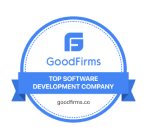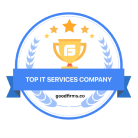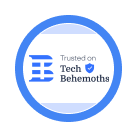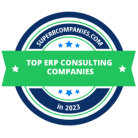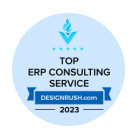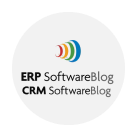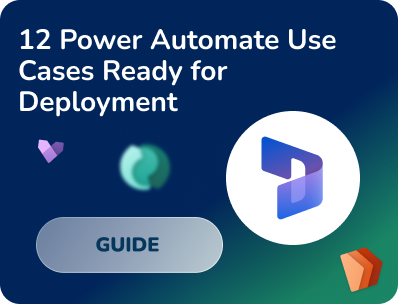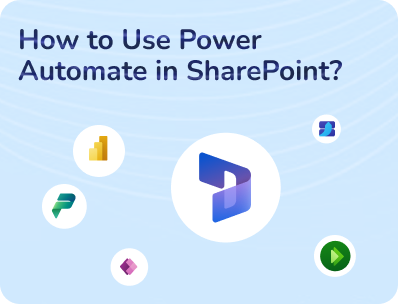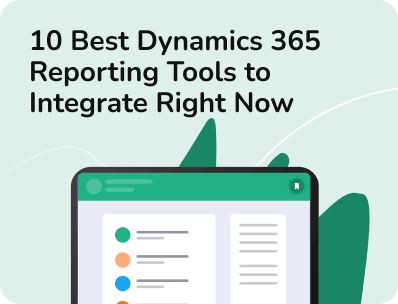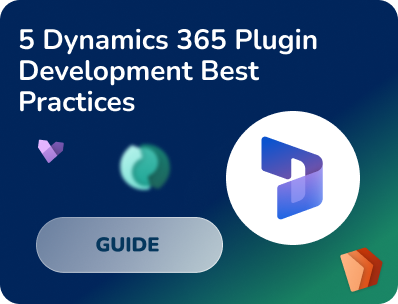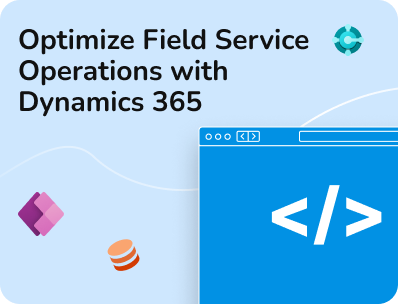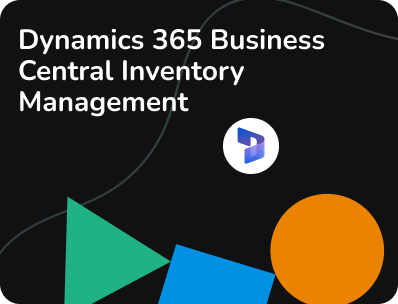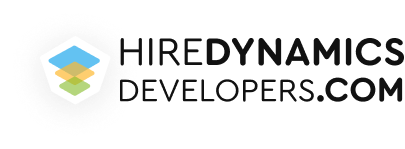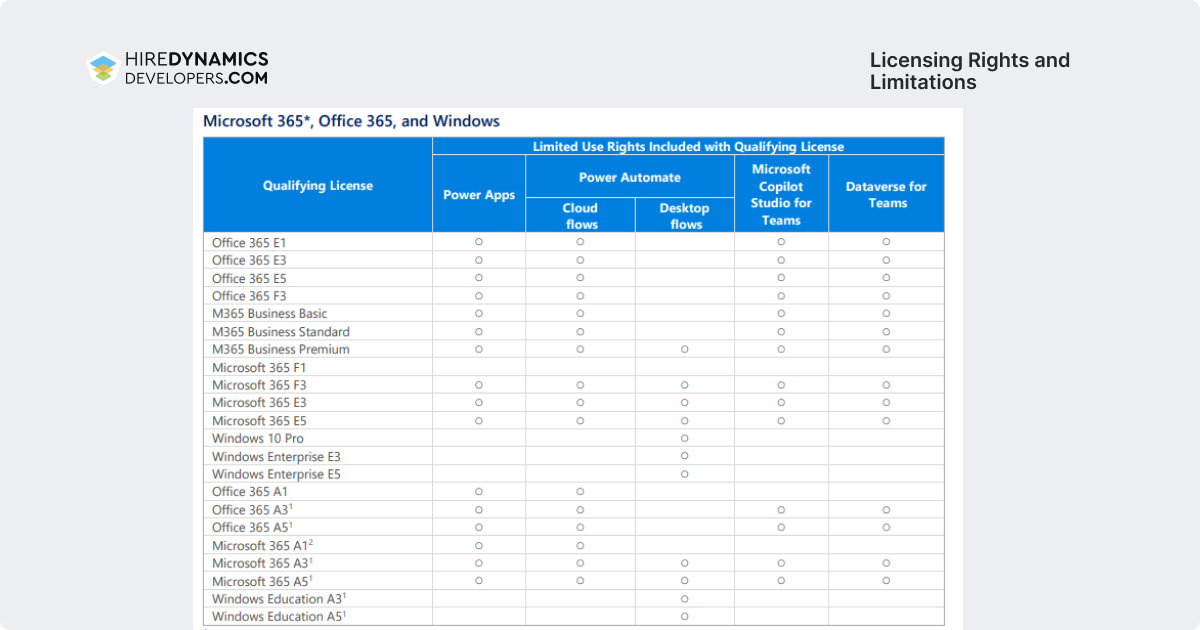- Services
- ConsultantsMODULESLegacy Support
- Industries
- Locations
WESTERN & NORTHERN EUROPE
EASTERN & CENTRAL EUROPE
- Our Company
 About Us
About UsLearn more about our HireDynamicsDevelopers portal and the team behind it.
Case StudiesRead successful stories from our clients across various industries.
ServicesFind the right service according to your specific business needs.

- Services
- ConsultantsMODULESLegacy Support
- Industries
- Locations
WESTERN & NORTHERN EUROPE
EASTERN & CENTRAL EUROPE
- Our Company
 About Us
About UsLearn more about our HireDynamicsDevelopers portal and the team behind it.
Case StudiesRead successful stories from our clients across various industries.
ServicesFind the right service according to your specific business needs.

A Complete Guide to Deploying Power Apps Across Your Company
Updated: December 2nd, 2025 by Ivan Farafonov
Before you start implementing Power Apps, it is important to define the goals of Power Apps integration and the business processes you want to automate. Power Apps offers you three main types of applications, so let’s take a look at what each one can do.
Canvas Apps
Flexible tool for creating custom applications using pre-installed standard components and extending functionality with PCF components.
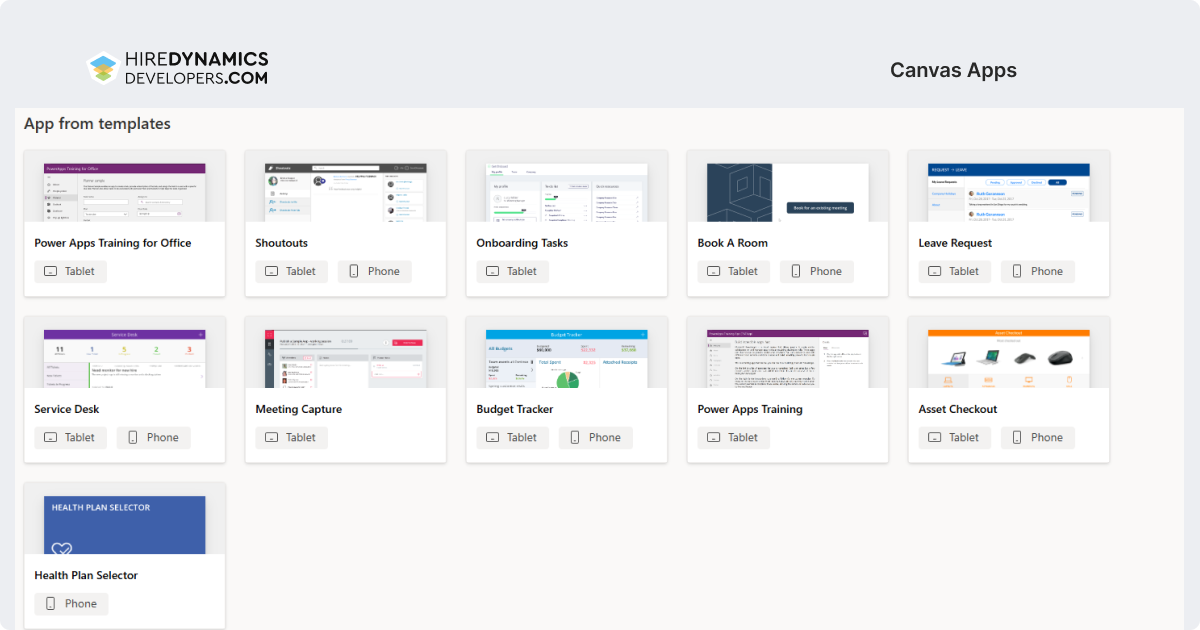
Key Capabilities:
- Visual UI design: Standard drag-and-drop tools to create and customize layouts without writing complex code, or dynamically resize and position elements on the layout to create a responsive design.
- Full Control: Full control over the processes and visual elements of your application through custom events on components.
- Extensive Connectivity: Connect to a wide range of external services and databases, including SharePoint, SQL Server, Dataverse, and others to simplify data management. You can also connect multiple databases in one application.
- Device Optimization: Optimize apps for a variety of devices, including tablets and smartphones, for correct display and functionality on any screen.
- Offline Functionality: Run the application without a network connection. This is especially important for mobile solutions, in processes where the user can change location, which can cause connectivity problems.
- Native Integration: Get all benefits of built-in seamless collaboration with other Microsoft products like Power Automate and Teams. And enhanced security through integration with Azure Active Directory. For example, the Canvas app can run inside MS Teams, which is great if the app is designed to book meeting rooms.
Examples of Use:
- Applications for planning, task assignment, progress tracking, and deadline management. You can also extend such an application with a PCF component for drag-and-drop logic to create an intuitive application design for everyone. For example, you can create a task and assign it to a specific person. Such an application is the perfect solution for your daily planning meetings.
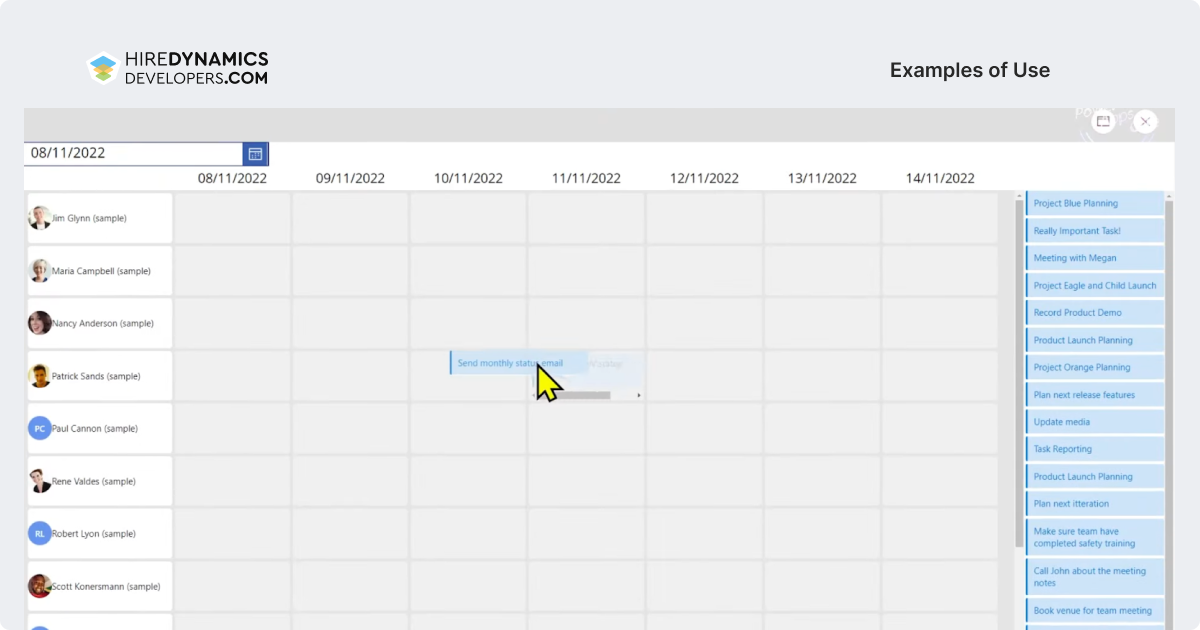
Image Source: How to build a #DragAndDrop Task Scheduler in #PowerApps
- A mobile application for workspace booking: developing an adaptive solution integrated with Office 365 calendars.
Canvas apps provide maximum development flexibility by allowing you to create fully customized applications using standard components and logical formulas that features not available in model-driven applications. They also make it easy to integrate applications with a wide variety of data sources.
Model-Driven Apps
This application will help you if you want to create a multi-tier process with Microsoft Dataverse database. The interface is automatically generated based on the data model and you can edit it. In addition, you can extend the functionality with web resources or plugins.
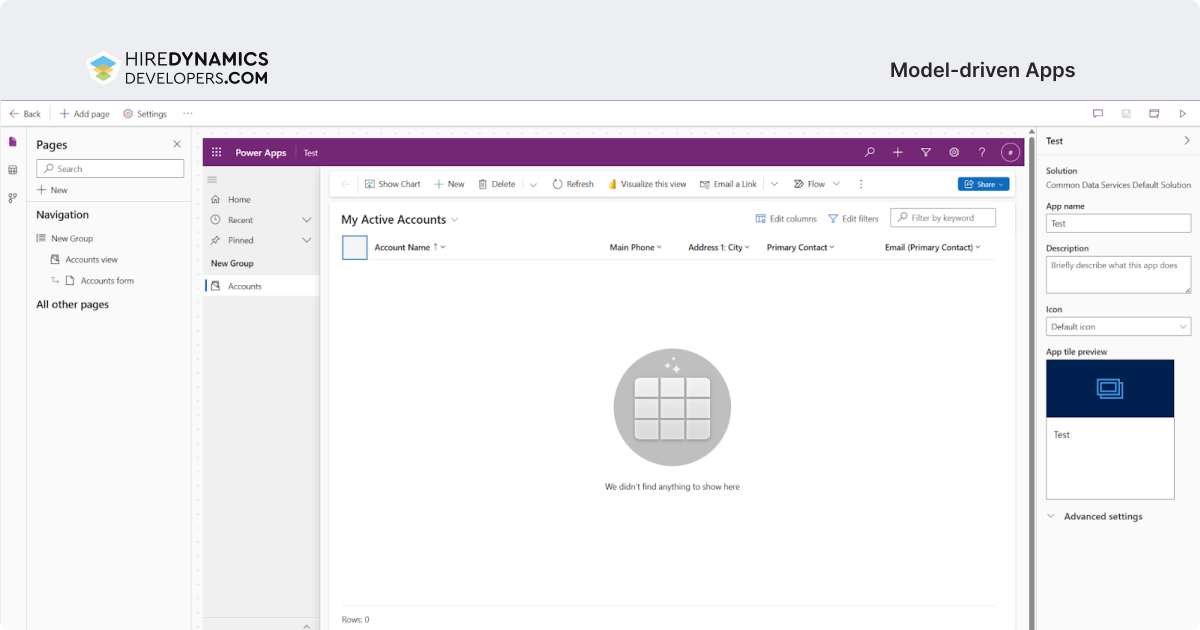
Key Capabilities:
- Process Automation: Built-in business process and rules support helps automate complex workflows.
- Granular Security: Protect data and manage user permissions at the application level with granular role and access rights configuration.
- Custom Code Extensions: The option to add custom code (e.g., via JavaScript or plugins) extends the app’s functionality to meet specific business requirements.
Example of Use:
- CRM Systems: Centralized management of client data.
- ERP Systems: Integration and automation of processes in finance, HR, and logistics.
- Supplier and Partner Management: Automating interactions with contractors and monitoring contract fulfillment.
Because model-driven applications are built from a data model and automatically generate interfaces, it simplifies your business process implementation and provides high scalability. Flexible configuration of security roles ensures that you have appropriate access to the information in the database.
Portal Apps
Designed for creating external websites that provide secure access to data stored in Dataverse. These sites can be either external to your business or internal.
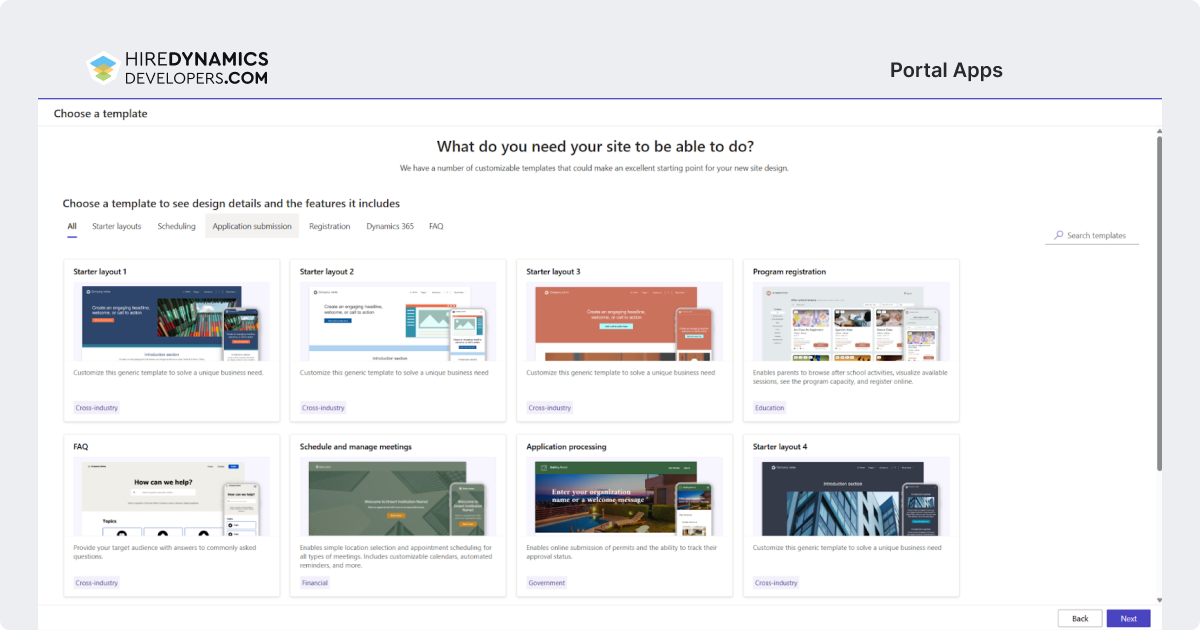
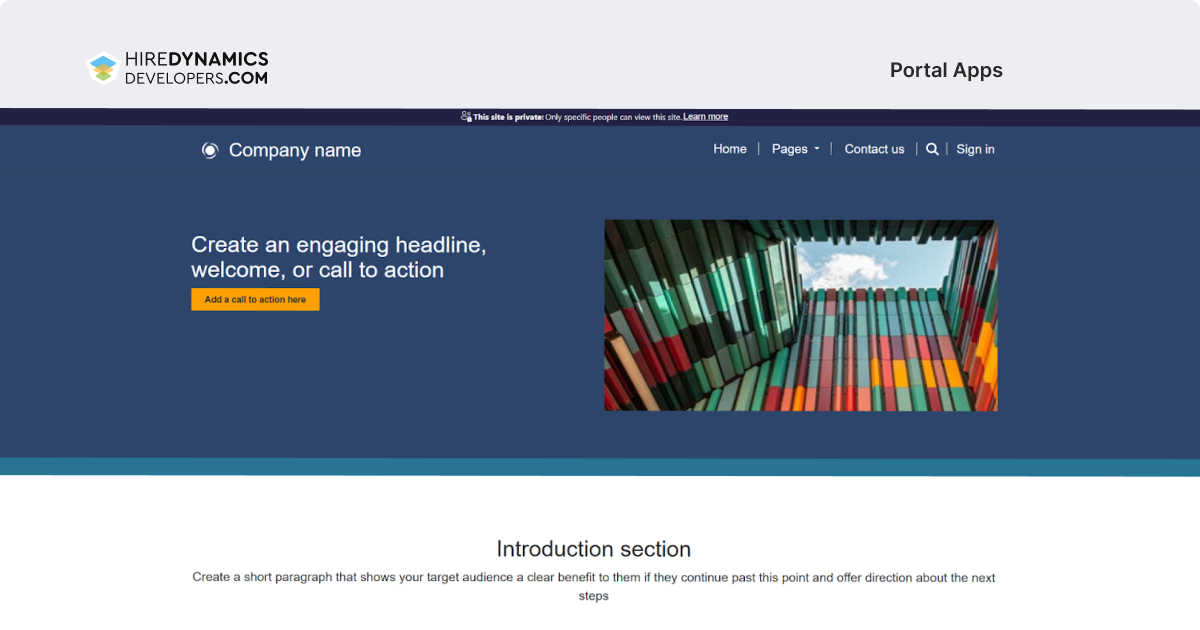
Key Capabilities:
- Public & Partner Portals: Enable the creation of web portals with access to business data.
- Centralized Management: Integrate with Dataverse for centralized information management.
- Robust Security: Support for multiple out-of-the-box authentication and access control methods
- Adaptive & Multilingual Design: Adaptive design and multilingual support ensure optimal viewing across devices.
Example of Use:
- A portal for self-service answer searches and feedback collection.
- A public resource for accessing personalized data, reporting, and managing subscriptions or orders.
- An integrated Dataverse portal for publishing current news, updates, and your business information.
With Portal Apps, you can create a branded Website with a flexible front-end, making it easier to customize self-service solutions for your customers and partners. This differentiates Portal Apps from Model-Driven and Canvas Apps, which are designed for back-end applications.
Unlock all the Power Apps features with our Power Apps consultants!
Step-by-Step Power Apps Implementation Guide
By following a step-by-step approach, you can optimize your business process to effectively integrate Power Apps into your organization. Before developing a Power Apps solution, you should conduct a detailed analysis of your business processes and define your integration goals. You must determine what processes need to be optimized and what tasks need to be performed. This analysis will not only help you determine the requirements for integrating Power Apps into your organization, but will also help you select the most appropriate type of application:
- Canvas Apps: Optimal when data is distributed across multiple sources and interface flexibility is essential.
- Model-driven Apps: Best when centralized management of structured data in the Microsoft Dataverse is a priority.
- Portal Apps: Ideal for providing external access and self-service to customers.
Consider licensing nuances: Canvas applications can run under standard licenses when premium connectors are not required, while model-driven applications often require additional investment in Dataverse infrastructure. We will discuss licensing in more detail in the next chapter of this article.
Once you have selected the best type of application, you can begin designing and developing the solution:
- Prototype: Create a minimum viable product (MVP) to pilot test.
- Evaluation: Evaluate the effectiveness of the solution early on, whether your application is optimizing your business process, analyze the next iterations of your project, and how long it will take to develop.
- Data Structure: When using the Model-driven approach, establish a clear data structure in Dataverse by defining entities, fields, and relationships. Also, ensure integration with external systems such as SharePoint, Azure SQL, or others when available.
The next step should be user testing and training:
- User Engagement: Engage key users to test the functionality of the application so that they can adopt your application in their daily routine.
- Feedback: Gather and analyze feedback. This is necessary to finalize the solution before full implementation.
- Training: Organize training or seminars for employees who will be using your application to help them get up to speed more quickly.
At the final stage, deploy and scale the solution:
- Rollout: Deploy the application to one or more teams, then extend its use to the entire organization.
- Monitoring: Set up a monitoring system to track performance, gather analytics, and respond quickly to problems.
Following this Power Apps implementation process will provide you with a comprehensive approach that includes analysis, planning, selection of the best application type, development, testing, and incremental scaling. A well-defined Power Apps implementation roadmap is key to success.
Our Successful Case Study
- Lithuania
- Microsoft Dynamics Solutions
- Part-time engagement
- 1 Senior Functional Business Central Consultant
- Power Apps, Power Automate, Power BI
Among our long-term contracts is a Microsoft cloud solutions provider. The team specializes in empowering small and medium-sized businesses with advanced cloud solutions and has been very successful!
The firm came to us with an urgent need for an additional part-time consultant. They needed a Senior professional with a high level of proficiency in Microsoft Power Platform tools, including Power Apps, Power Automate, and Power BI. In addition, they were looking for candidates with at least four years of consulting experience to provide hands-on experience.
Within a short timeframe, we successfully found and hired a Business Central Consultant with extensive Power Apps experience and a strong portfolio. The selected candidate easily integrated into the company’s operations and helped to deliver projects on time and with high quality.
Our client was satisfied with the fast and efficient hiring process, as our expert’s qualifications were exactly in line with their needs.
Advanced Features and Integration with Corporate Systems
In addition to the basic functionality, Power Apps provides you with a number of additional tools that allow you to customize the platform to meet your specific needs.
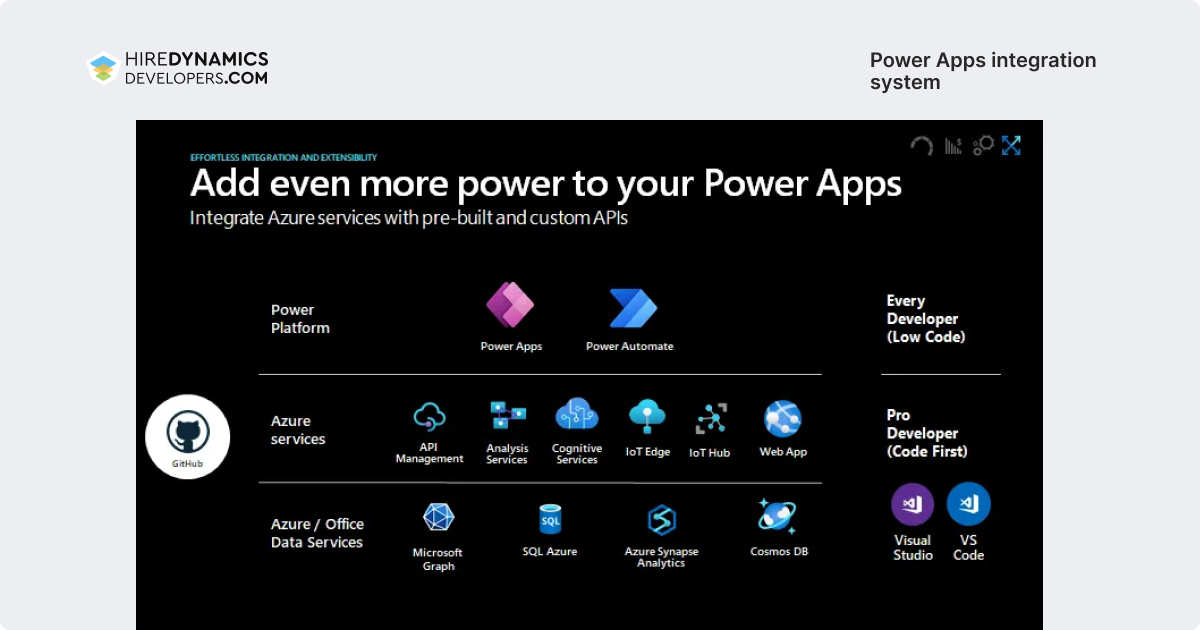
Extended Customization:
- Custom API Development: Develop custom APIs that allow you to be flexible in integrating and exchanging data with external systems.
- Dataverse Plugins: Extend standard backend functionality with custom business logic. You can handle real-time data events.
- Custom PCF Components: Use TypeScript and React to develop unique phoneme elements in your applications in the Power Apps interface to improve functionality and usability.
Data Processing and Integration:
- Dataflows: Automate extracting, transforming, and loading data from multiple sources into your database.
- Azure Synapse Link: By automatically synchronizing data from the Microsoft Dataverse with Azure Synapse Analytics, you can create a scalable analytics report based on real-time data in your Power Apps applications without impacting performance.
Incorporation of Intelligent Technologies:
- AI Builder: Integrate artificial intelligence into your applications by creating and deploying models for object recognition, text analysis, predictive analytics, and process automation—no deep programming or machine learning expertise required.
- AI Hub: Access a centralized platform that gathers ready-made AI models and solutions, allowing organizations to quickly find, implement, and scale intelligent capabilities within the ecosystem.
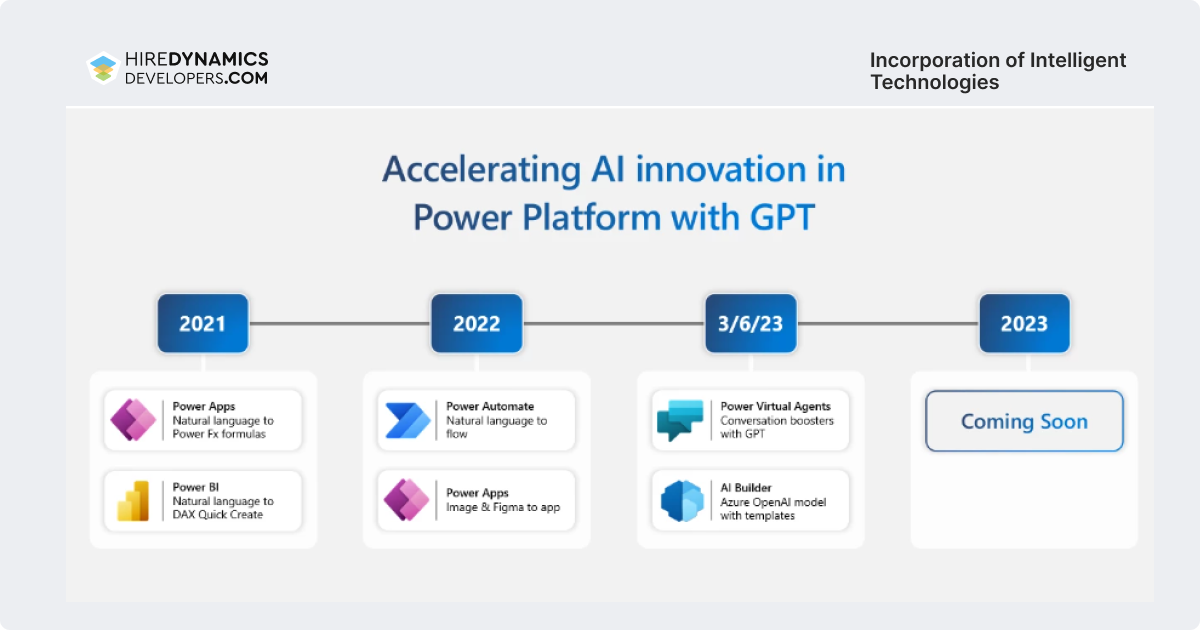
Using Microsoft Power Apps enables organizations to harness these advanced tools to optimize workflows and drive innovation.
Secure Data Connectivity:
- Gateways: Connect on-premises data sources to cloud applications, ensuring real-time operation.
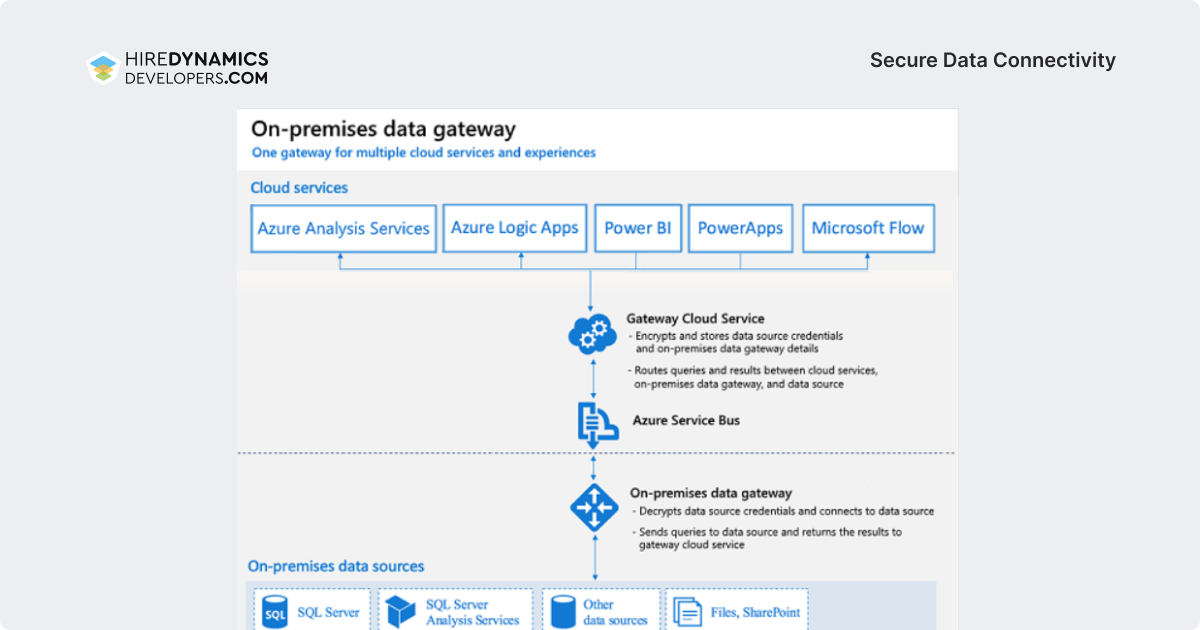
Image Source: About on-premises gateway
Power Platform Solutions to Implement with Power Apps
Power Apps becomes even more powerful when you additionally perform a Microsoft Power Platform implementation. This allows you not only to create applications, but also to enhance their functionality through process automation, advanced analytics, robotic scenarios, and built-in chatbots. Here are the solutions you can integrate with Power Apps:
Power Automate
This tool automates business processes. You can create flows that perform actions in response to events in Power Apps, such as automatically sending messages, creating records in CRM, or updating data in other systems.
Power BI
This solution adds an analytical layer to your applications. As a result, users can see interactive dashboards and visualizations directly in Power Apps with online updates.
Power Virtual Agents
AI Builder
This feature adds intelligent features to Power Apps. You can use ready-made or custom AI models to recognize text, process images, predict results, or analyze customer sentiment.
- Consider Power Platform implementation services if you need professional assistance with any of the solutions!
Who Can Benefit from Power Apps Implementation
Power Apps is a universal tool that helps organizations in various fields quickly create and implement digital solutions. Thanks to its ability to automate processes, integrate with other systems, and require minimal complex development, the platform is relevant for companies of all sizes. Its application is not limited to a specific industry; Power Apps will be a real find and will help transform processes in any field. Here’s where it’s most relevant:
Healthcare
Finance
Retail & E-commerce
Manufacturing
Education
Government & Public Sector
Logistics & Transportation
Real Estate
Energy & Utilities
Professional Services
Licensing Power Apps
Power Apps licensing has a very flexible model that allows organizations to choose the most appropriate option based on their size, needs, and usage scenarios, but it can also be confusing when choosing a license. Here are the key points:
Ways to Acquire Licenses:
- Corporate Agreements: (Enterprise Agreement, Enterprise Agreement Subscription, Server and Cloud Enrollment, MPSA)
- Purchases Through Microsoft Partners
- Special Programs: For governmental and educational institutions
- Direct Purchases: Via Microsoft’s official pricing pages (for Power Apps, Power Automate, Copilot Studio, Power Pages)
Main Types of Licensing for Power Apps:
- Power Apps Premium: Designed for businesses that require unlimited access to create and use custom applications and Power Pages websites. It costs approximately $20 per user per month (with potential discounts for large volumes).
- Power Apps per app: A license that allows a user to run one specific application or website in a designated environment—ideal for scenarios with a limited number of apps.
- Pay-as-you-go: A usage-based payment model where fees are based on the number of active users running a specific application, which is especially convenient for irregular usage.
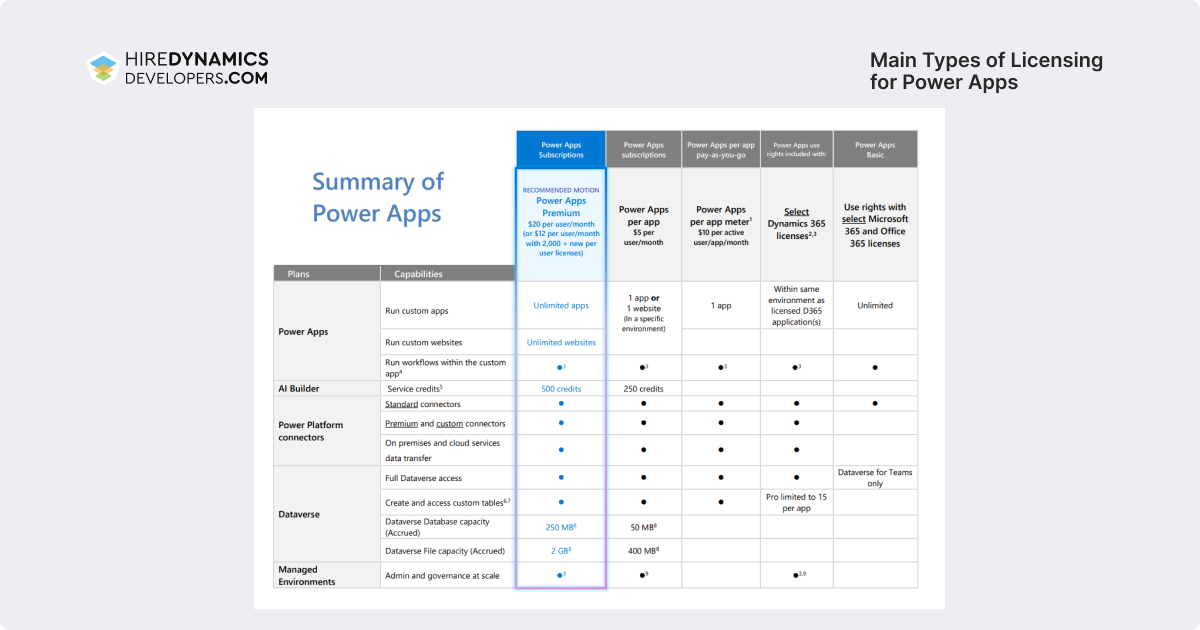
Image Source: Microsoft Power Platform Licensing Guide
Additional Licenses and Options:
Subscription Add-ons: Such as Power Platform subscription add-on licenses (e.g., for, AI Builder, and extended Dataverse capacity for databases, files, and logs).
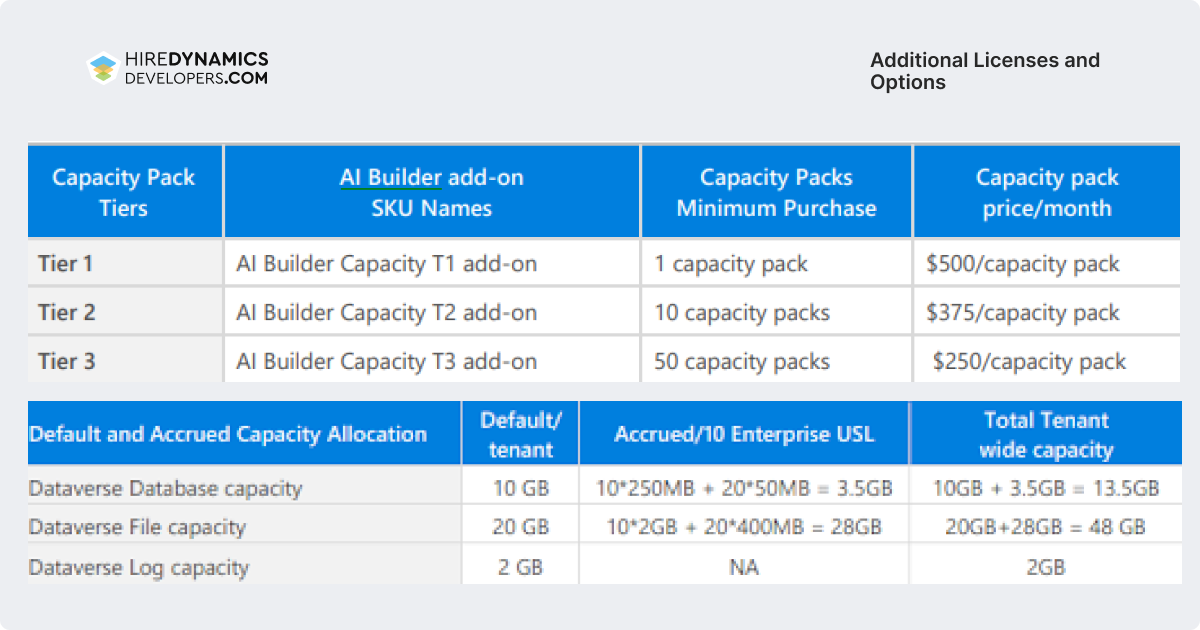
Image Source: Microsoft Power Platform Licensing Guide
- Power Pages Licensing: These allow payment for additional resources, such as capacity for Power Pages (for both authenticated and anonymous users).
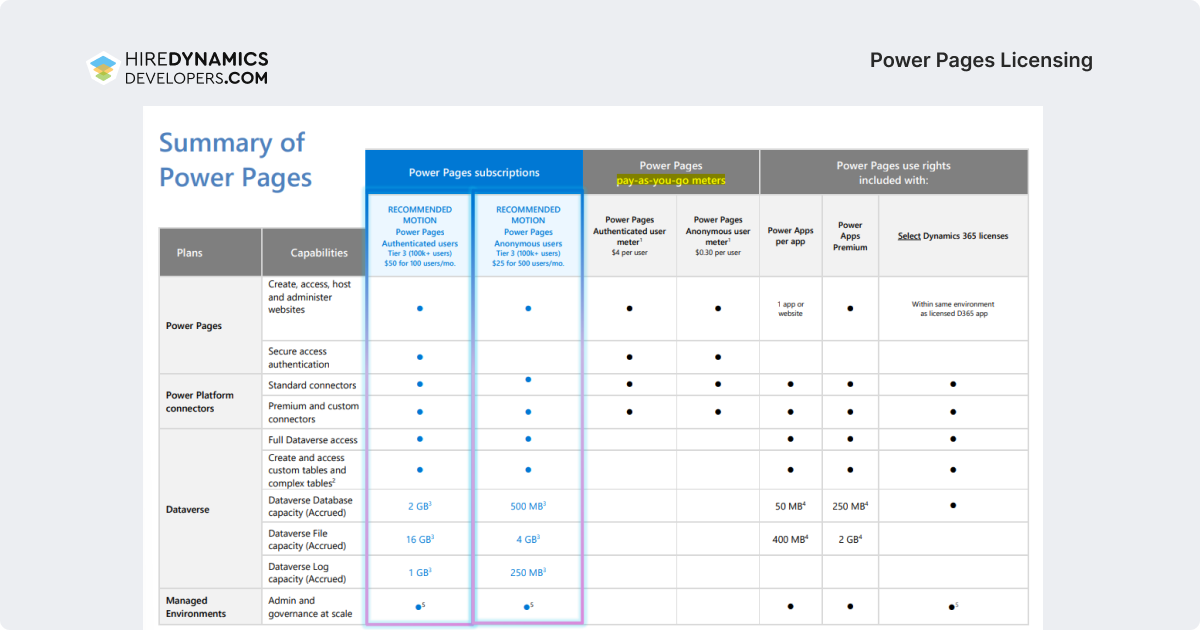
Image Source: Microsoft Power Platform Licensing Guide
Licensing Rights and Limitations:
- Every user or device interacting with Power Apps (entering data, viewing, performing operations) must be properly licensed.
- Licenses can be issued on a per-user, per-app, or pay-as-you-go basis.
- Some subscriptions (e.g., from Dynamics 365 or Microsoft 365/Office 365 packages) include limited rights to use Power Apps, applicable only within the corresponding applications and environments.
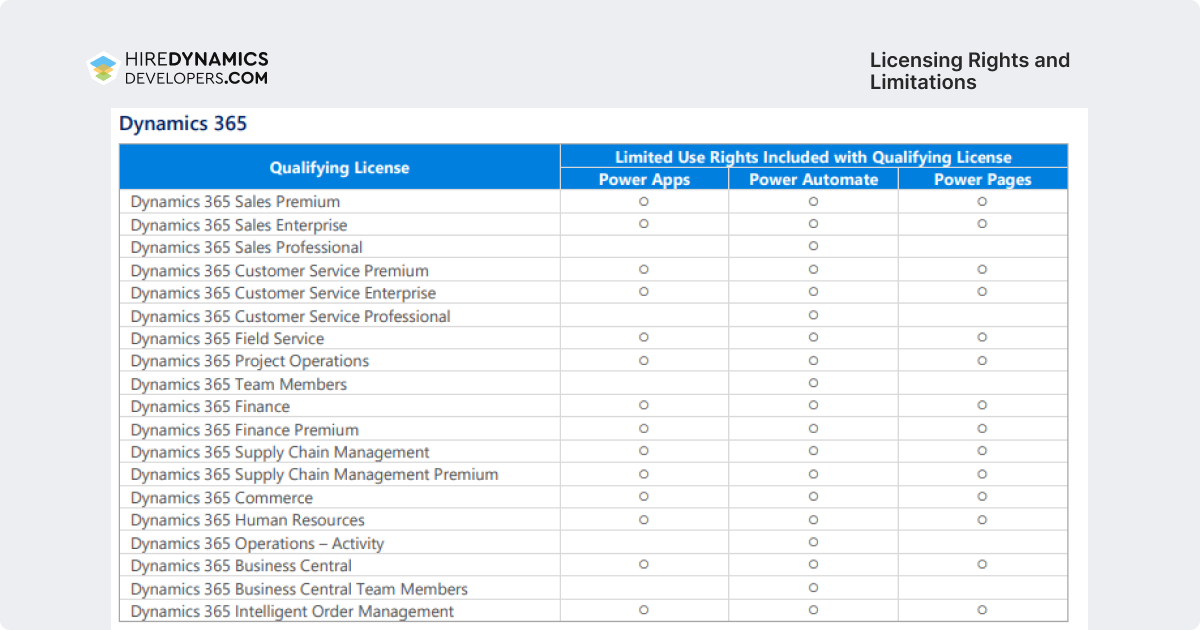
Image Source: Microsoft Power Platform Licensing Guide
Image Source: Microsoft Power Platform Licensing Guide
When evaluating licensing options, it is important to consider the cost of implementing Power Apps. Power Platform licensing is designed for flexibility and scalability. And you must read Microsoft Power Platform Licensing Guide, as it includes a complete description of licensing and current pricing for services.
If you need help understanding licenses, application types, their features, and the implementation process in general, consider working with specialized PowerApps developers. You can hire experts for the full cycle of creating and optimizing solutions. This approach allows you to get high-quality applications with all the necessary tools to cover your work processes.
Organizing a Team for Successful Power Apps Implementation
Successful integration of Power Apps and solution support requires a multidisciplinary team:
- Program Manager: Coordinates work, manages timelines, and resolves emerging issues.
- Business Analysts: Identify and formalize business requirements, analyze current processes, and propose optimization strategies.
- Power Apps and Power Automate Developers: Create, configure, and integrate applications with corporate systems.
- Solution Architects: Develop the technical architecture, integrate with CRM, ERP, and databases, and ensure security.
- Power Apps Consultants: Employees who can independently prototype and customize solutions to meet specific departmental needs.
- Quality Assurance Specialists (QA): Test the applications and identify and fix issues before and after deployment.
Power Apps consultants can provide valuable insight and work with business analysts to customize and analyze business processes using their knowledge of the Power Apps platform. Experienced developers play an important role in customizing and extending functionality. Effective use of Power Apps unlocks the potential of the platform, and organizations that choose to use Power Apps can significantly streamline their operations and reduce costs.
Power Apps Services from HireDynamics Developers
If you are looking for a reliable team for Power Apps development, we can help. We have an extensive database of experienced professionals with various technical skills who are capable of creating scalable solutions and integrating them into your infrastructure. Here are the services you can count on:
Our experts connect Power Apps to your ERP, CRM, and other business systems to create a unified working environment. This allows you to combine data from different sources and optimize operations without disruptions.
Our team implements Power Apps solutions according to the specifics of your organization. Specialists configure processes so that digital tools support your business goals as much as possible.
Consultants us Power Apps for custom app development and create applications based on your needs and industry requirements. The developed solutions are easily scalable and ensure smooth operation in the long term.
Our experts help you identify the best use cases for Power Apps in your company. With reliable professionals on your side, you get an implementation strategy and practical advice on how to improve efficiency.
The team adapts Power Apps to specific tasks, adding features that your company really needs. This may include interface changes, business logic, or integration with unique systems.
Our consultants provide technical support after launch, regularly checking performance and implementing updates. This approach helps maintain the high speed and security of your solutions.
Cooperation Models We Offer
A significant advantage of working with us is the ability to hire experts on flexible cooperation models. For example, you can hire Power Apps programmers on a full-time or part-time basis and adjust their level of involvement as the project workload increases or decreases. Here’s how it works:
Dedicated Power Apps Developer
You can hire dedicated Power Apps developer who will work exclusively on your project full-time. This ensures full integration into your workflows and understanding of your team's internal challenges.
Flexible Power Apps Consultant
You can also hire PowerApps consultant on a part-time basis with the ability to adjust the schedule and level of involvement. You can engage an expert at any stage of the project and be confident in their expertise.
Some of our Power Apps Consultants
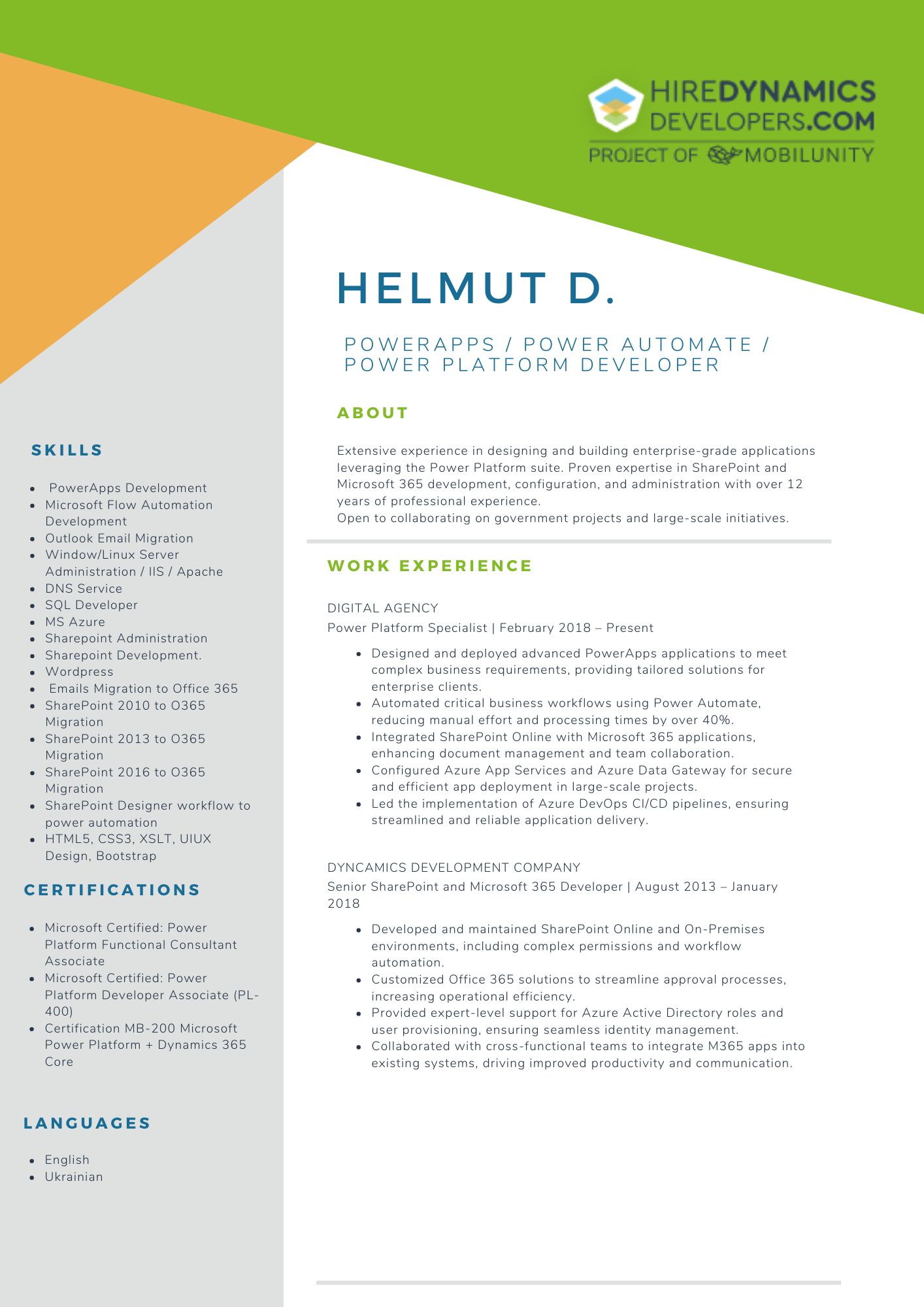
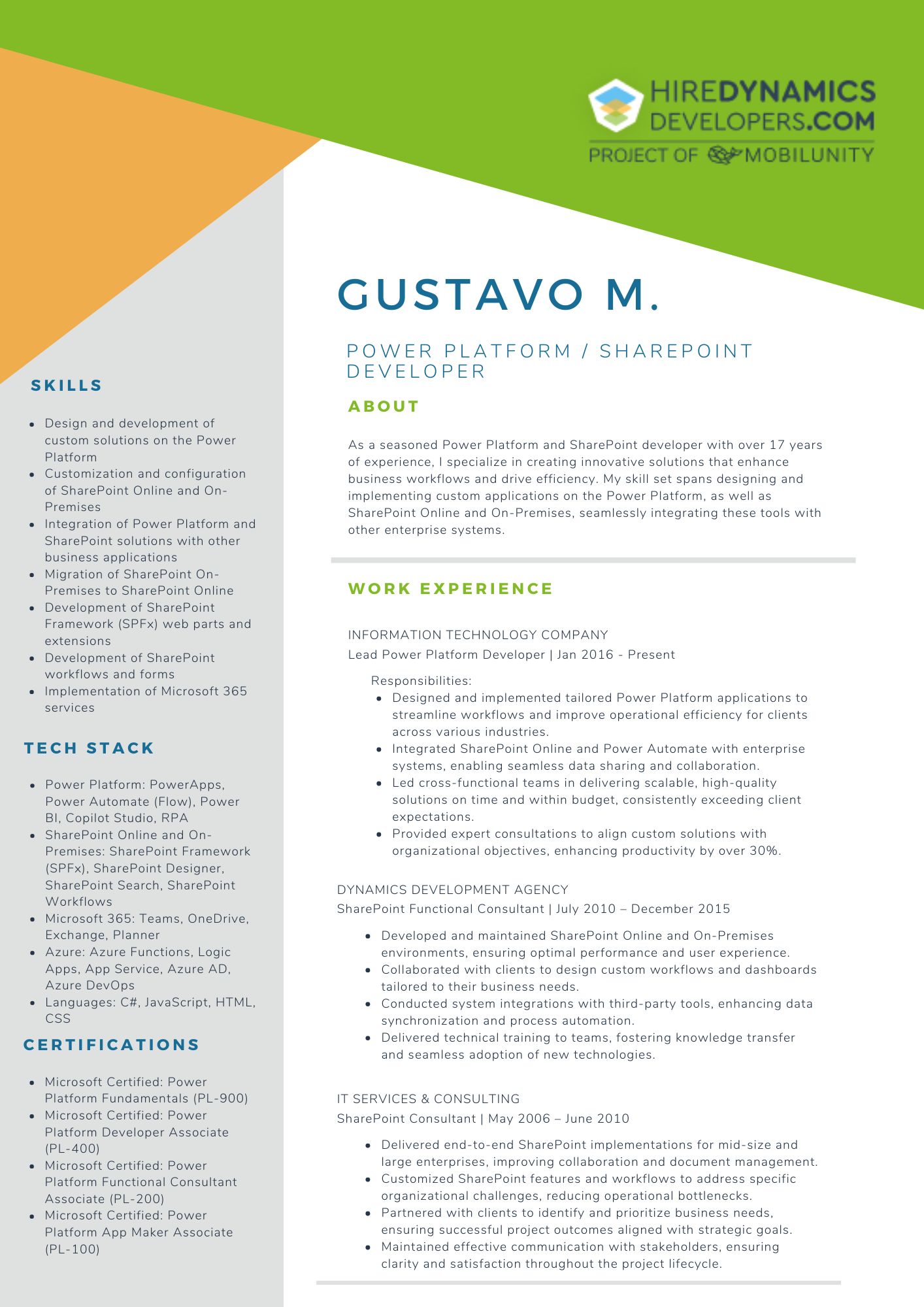
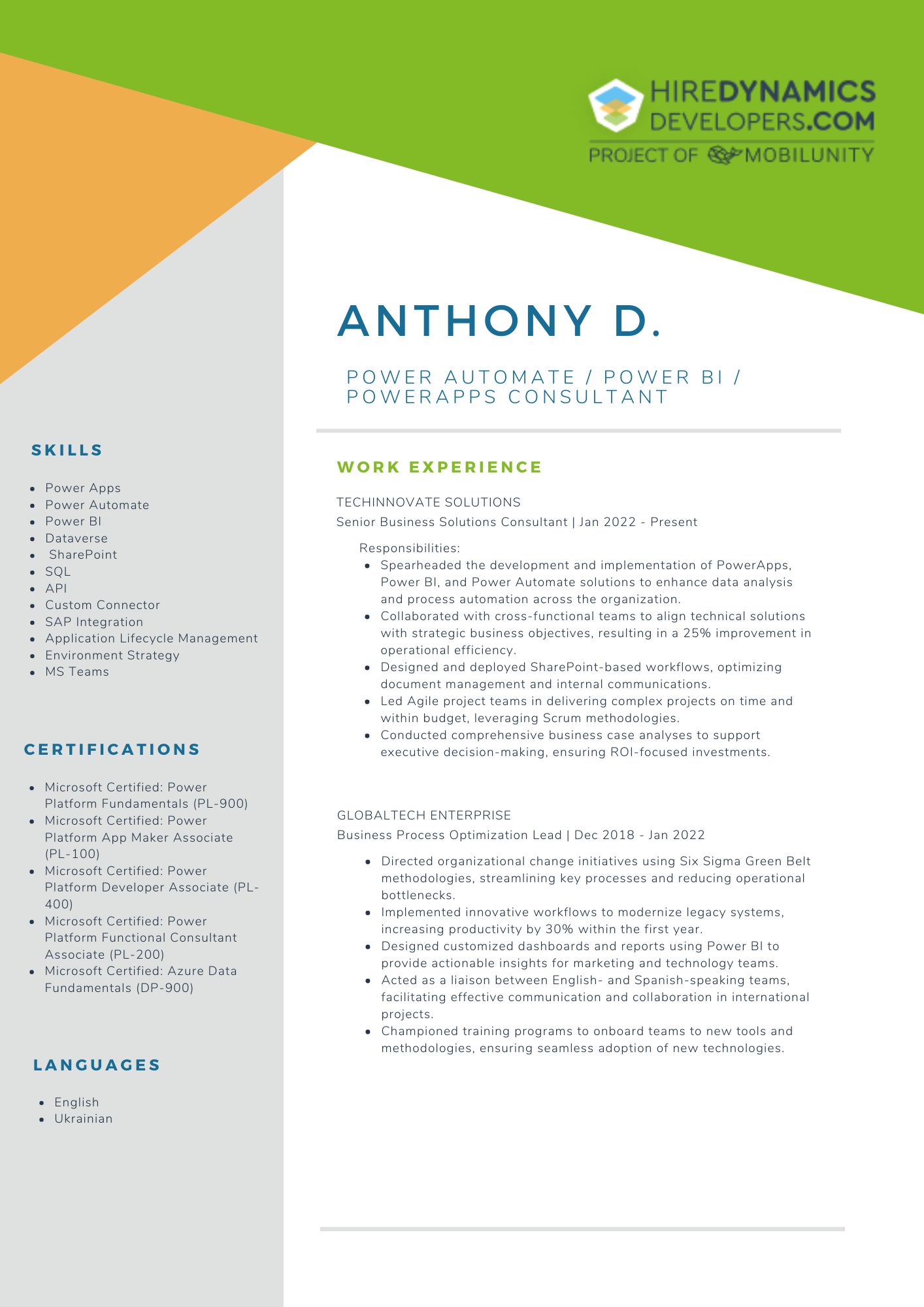
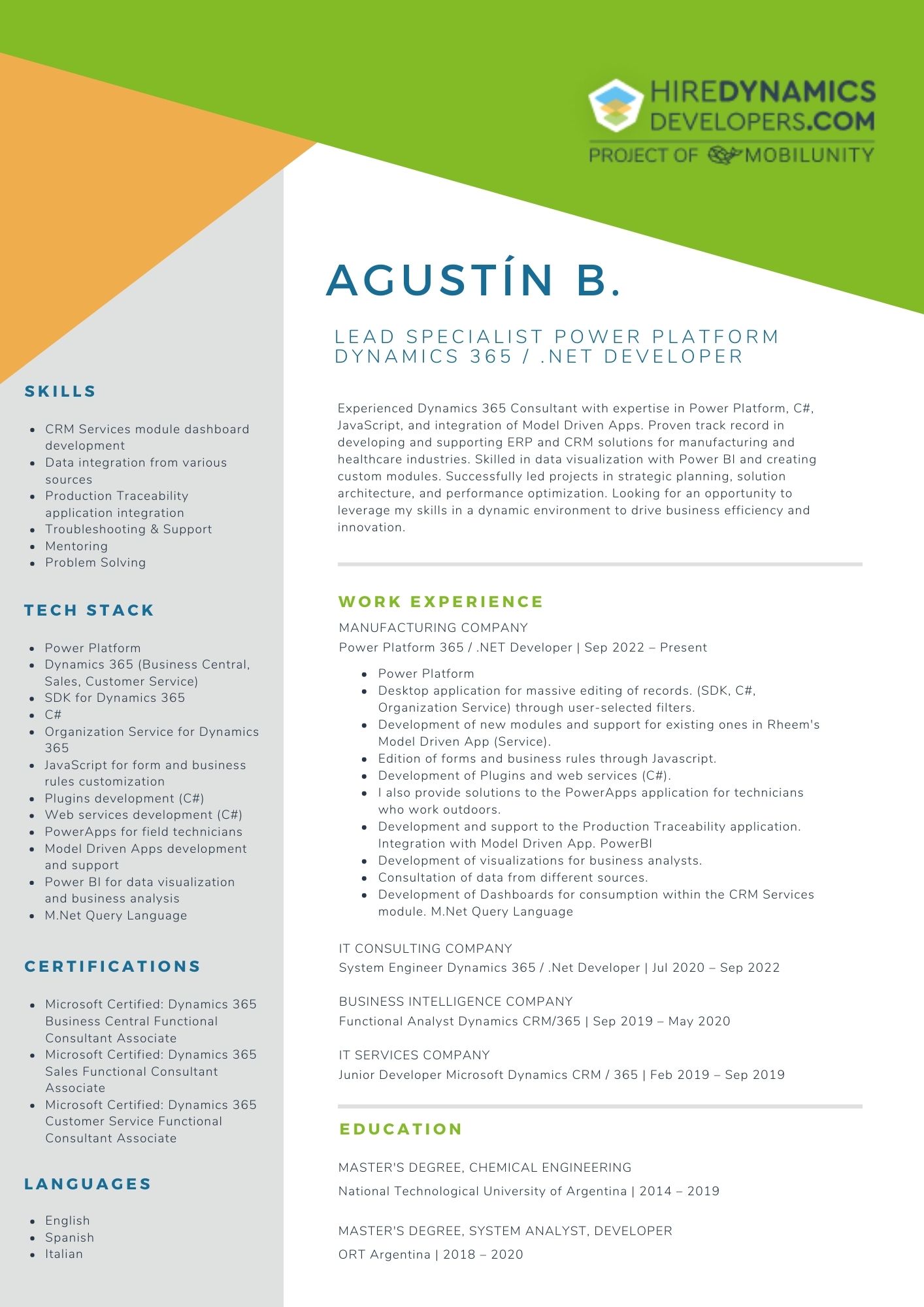
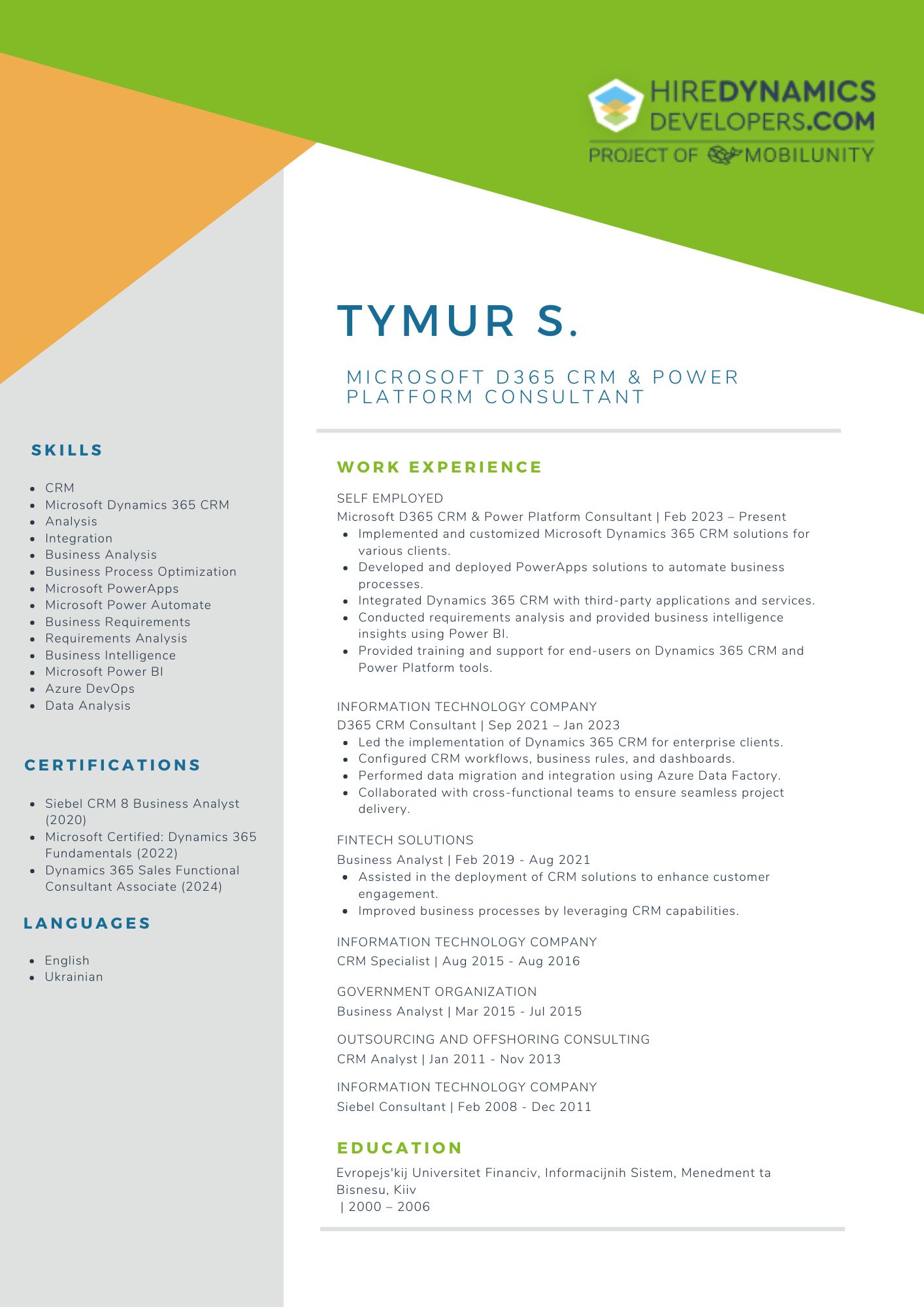
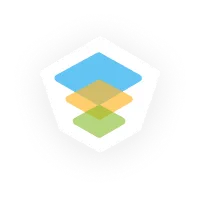
Conclusion
Power Apps is a versatile, low-coding platform that enables you to quickly build and deploy business applications that meet your unique needs. Successful implementation of Microsoft Power Apps requires detailed planning, selecting the right tools (canvas, model-driven, or portal apps), integrating with existing systems, building a multidisciplinary team, and choosing the right licensing model.
By following these steps and recommendations, you can optimize business processes, increase employee productivity, and ensure business scalability. In addition, a comprehensive strategy such as this serves as a Microsoft Power Apps implementation guide that paves the way for successful Power Apps deployment and, ultimately, adoption of Microsoft Power Apps in the operation of your business.
Outline
Dorothee H.
20 Hours / Week
Serhii S.
20 Hours / Week
Łukasz J.
20 Hours / Week
Request Our Services
Explore and Implement All The Benefits of Using Power Apps!
Your Partner Recognized in Dynamics Community
